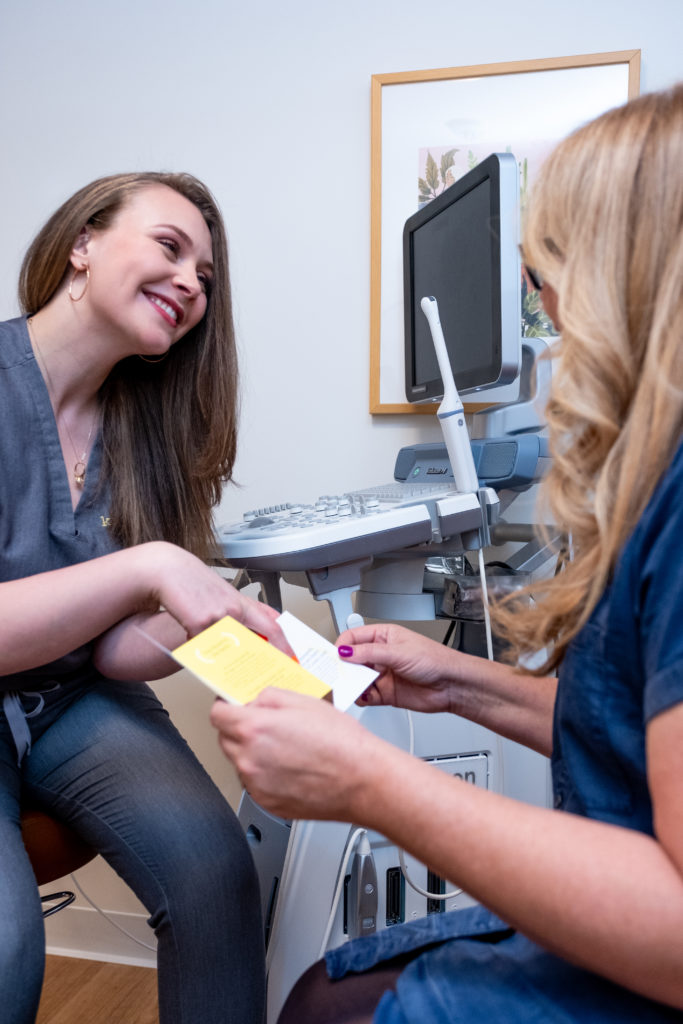As an OB/GYN in NYC for over 10 years, one of the most common inquiries women have is about their fertility. Questions like: How do I know if I am fertile? How do I know everything is okay or will be okay when I want to conceive? How do I know that I will be able to conceive?
Not all of these questions can be immediately answered, but it is important to understand what you can know.

Difference between fertility and achieving pregnancy
First, it is important to distinguish the difference between fertility and achieving pregnancy. Simply put, pregnancy is carrying a fetus, ideally to full term, and giving birth to a newborn baby. Pregnancy can be accomplished in a variety of ways regardless of whether or not the child is genetically related to his/her/their parents. For most healthy women, pregnancy itself can be safely accomplished up to the age of 55. Fertility is very different.
When we use the word ‘fertility’ we are traditionally speaking about one’s ability to have children who are genetically related to oneself. For biological women, fertility is directly related to age and declines over time. Women are born with all of the eggs they will have and both the quantity and quality decline as she ages. Although it is possible to conceive as long as a woman experiences her menses, fertility begins a mild decline at the age of 32, followed by a more steady decline beginning at age 35, and a more significant decline after age 40. Many women struggle to conceive a biological child after the age of 40 and some even prior to 40 years old.
How do I assess my fertility?
A fertility assessment can be performed on any woman in her reproductive years (ie., has had her first menses and is not yet in menopause). The assessment consists of a blood test (AMH) and a specialized sonogram (AFC).
AMH Blood Test
The blood test is called AMH (Anti-mullerian hormone) and is a measurement of a hormone that is secreted by the follicles (which contain the premature eggs) in the ovaries each month. An easy way to understand this test is the greater number of follicles in the ovary, the higher the result will be. An ideal range for AMH is 1-6, but depends on each individual laboratory so you must discuss the exact results with your OB/GYN.
AFC sonogram test
The sonogram is performed to assess the AFC (antral follicle count). The AFC is actually counting the number of follicles seen in the ovaries in a given month. The ideal result would be in the teens to 30 follicles.
When you have the results of both the AMH and AFC, you can assess fertility in regards of quantity. From that information, you can also understand if you would be a good candidate for egg or embryo freezing. Depending on your ideal family size, you will be able to understand where your fertility stands today and can make decisions regarding your fertility future.
“You can assess fertility in regards of quantity.”
Two last things to understand about assessing your fertility. One, the fertility assessment cannot assess quality of eggs. Egg quality declines with age and cannot be further assessed until pregnancy or if one were to choose to undergo embryo freezing. Second, but even more importantly, a fertility assessment cannot predict the future. You should never make a decision to delay fertility treatments or trying to conceive based on a fertility assessment.
Your fertility is the best it will ever be today and only declines over time. Fortunately, you now have the ability to take control over your fertility. Own your future! Make an appointment with your OB/GYN and ask for an evaluation today.